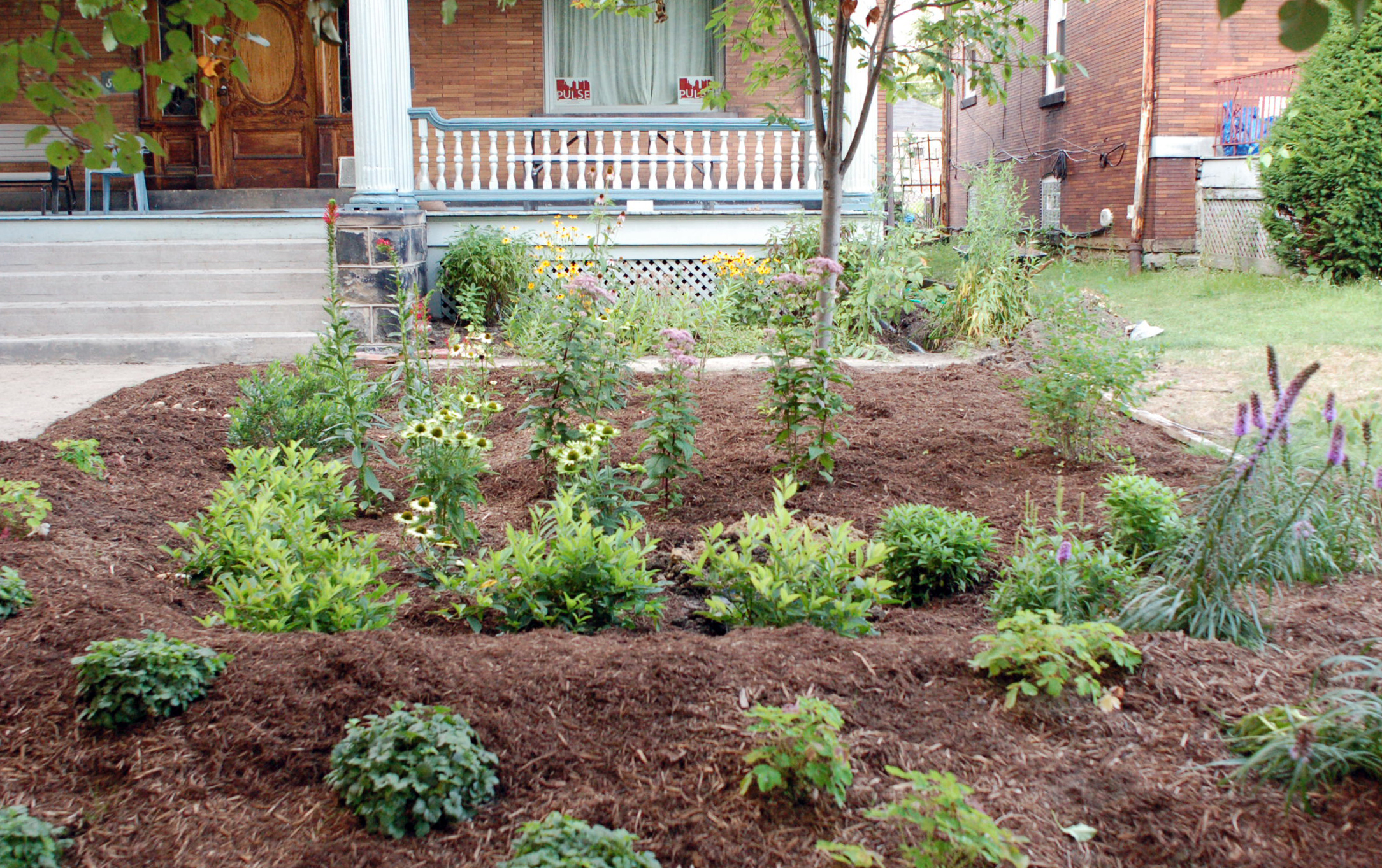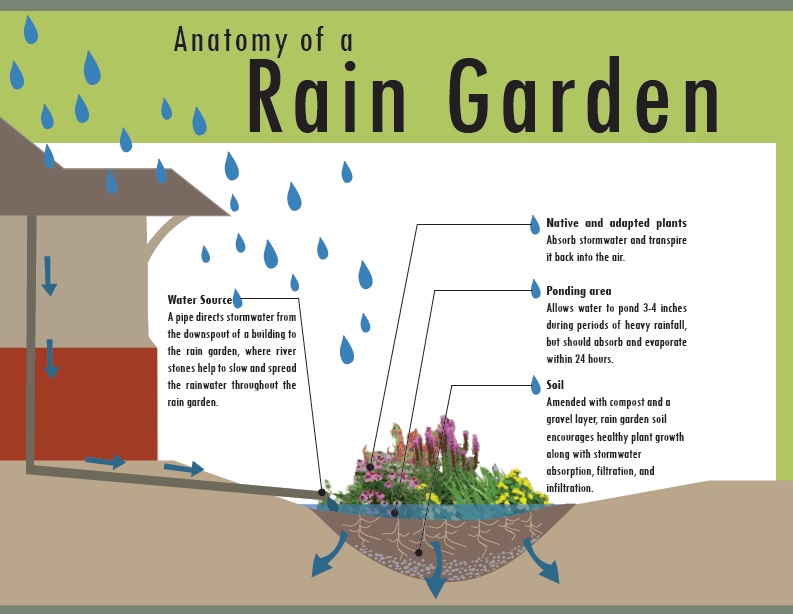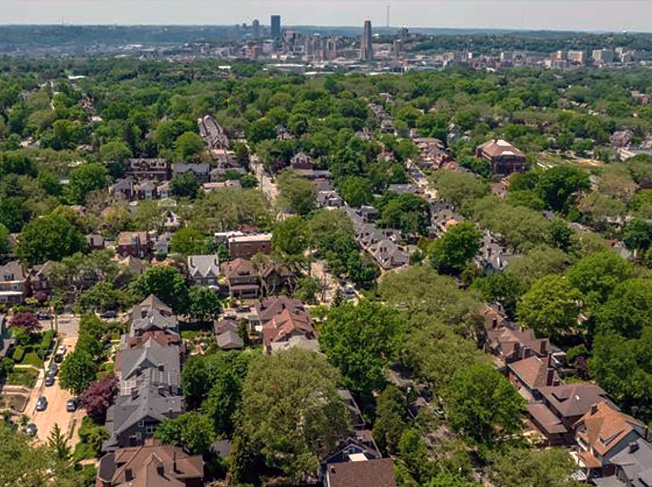Rain Gardens are Beautiful and Hardworking

By Brenda Smith, Executive Director of Nine Mile Run Watershed Association
All residents of Squirrel Hill live in one of three watersheds – Nine Mile Run, Negley Run or Panther Hollow – and all three share certain problems, and potential solutions, in common. Like all urban watersheds, each of these areas has a high percentage of impervious surfaces – roofs, roads, and parking lots – which generate a lot of stormwater runoff during rain storms. The volume and velocity of this runoff is a problem in and of itself, causing erosion and wrecking habitat in the Nine Mile Run and Phipps Run streams. But worse, most of this runoff goes straight into the City of Pittsburgh’s combined sewer system, leading quickly to sewer overflows, and in very severe storms, to flooding and basement back-ups. This can have tragic consequences, as we witnessed on Washington Boulevard at the bottom of the Negley Run watershed, just a few years ago.
Our city and county sewer Authorities are working on plans mandated by state and federal regulators to reduce sewer overflows which will take years to implement. But in the meantime, every homeowner can be part of the solution by removing at least some of the stormwater generated on their property from the sewer system. There are several ways to disconnect your downspouts from the system; one of the most effective is to install a rain garden to which one or more downspouts are re-directed.

A rain garden is a shallow depressed area in your yard that is filled with a soil mix that encourages infiltration of water, and is planted with deep rooted native plants and grasses that can drink and transpire large quantities of water quickly. As the plants begin to become established, a rain garden soon looks like any attractive, everyday garden. It attracts birds and butterflies and other pollinators, and can be incorporated into a variety of landscapes and yard designs.
Like any garden, a rain garden will require some maintenance. But the garden will receive extra water from each rainfall, and many rain garden plants are also very tolerant of drought, so overall they require less attention than most gardens.
Because deep digging, removal of some soil, and replacement with a better soil mix is required, rain garden installation is a big task to take on, but may people have built their own successfully. Fortunately, there are also experienced designers and installers available locally. For more information about rain gardens and how you can help ease stormwater problems, please visit http://raingardenalliance.org/ or http://www.stormworkspgh.com/.




